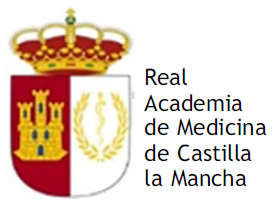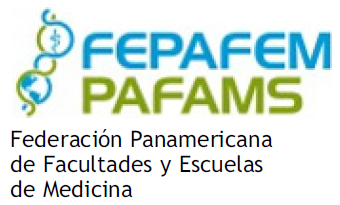Anger leads to behaviors that cause a lot of damage. Life skills training can be effective in controlling anger because anger is due to a lack of skills and unpredictability of the situation. The present study aimed to determine the effect of multimedia-based education on students’ anger management skill.
Material and methodsThe quasi-experimental study was performed on 88 students of Anesthesiology, Nursing, Midwifery and Operating Room of North Khorasan Nursing and Midwifery School. The educational content was screened through the monitor in front of the main hall of the Nursing & Midwifery School during the students’ attendance for one week. Students’ anger control skills were assessed by tests paired T-test, independent T-test and one-way ANOVA. Data were analyzed using spss16 software.
ResultsThe mean age of the students was 20±2.3. Regarding the effect of multimedia-based education on students’ anger control skills, the mean of anger control score was 24.61±2.83 (Min=11 and Max=33) before the intervention, and 28.64±2.40 after the intervention. There was a significant difference in mean scores before and after the intervention (P=.000).
ConclusionMultimedia-based education has been effective in controlling students’ anger. Given the effect of multimedia-based education on anger control skills, this approach can be used to teach other essential topics to students, including life skills, especially in health science students.
La ira origina comportamientos que causan mucho daño. La educación en habilidades para la vida puede ser efectiva para controlar la ira, debido a la falta de competencias y a la impredecibilidad de la situación. El objetivo del presente estudio fue determinar el efecto de la educación basada en tecnología multimedia en la habilidad de los estudiantes para gestionar la ira.
Material y métodosEste método cuasi-experimental fue realizado con 88 estudiantes de Anestesiología, Enfermería, Partería y Quirófano de la Escuela de Enfermería y Partería de Jorasán del Norte. El contenido educativo se proyectó a través del monitor del vestíbulo principal de la Escuela de Enfermería y Partería durante el periodo de asistencia de los estudiantes de una semana de duración. Se evaluaron las técnicas de los estudiantes para controlar la ira utilizando pruebas t pareadas, pruebas t independientes y la prueba ANOVA unidireccional. Los datos fueron analizados utilizando el software spss16.
ResultadosLa edad media de los estudiantes fue de 20 ± 2,3 años. En cuanto al efecto de la educación basada en tecnología multimedia en las habilidades de los estudiantes para controlar la ira, la media de la puntuación de control de la ira fue de 24,61 ± 2,83 (min = 11 y máx = 33) antes de la intervención, y 28,64 ± 2,40 tras la intervención. Se produjo una diferencia significativa en cuanto a las puntuaciones medias antes y después de la intervención (p = 0,000).
ConclusiónLa educación basada en tecnología multimedia ha sido efectiva para controlar la ira de los estudiantes. Dado el efecto de la educación basada en tecnología multimedia en las habilidades de los estudiantes para controlar la ira, podría utilizarse esta técnica para impartir otras enseñanzas esenciales, que incluyan habilidades para la vida, especialmente para los estudiantes de ciencias de la salud.
The wish of every wise man is to have a rational, healthy, purposeful, and flexible life to deal whit vicissitude, but why is it not possible for many of us to achieve worthwhile goals? Today, despite profound cultural changes and changes in lifestyles, many people lack the essential skills to deal with life issues.1 Researches show that many health problems and affective disorders have psychosocial roots, and one of the problems is the lack of anger control skills.2,3 Anger is one of the emotions that play an important role in people's lives. Anger is caused by an individual's reaction to others’ inappropriate behaviors. Although anger is a natural emotion and sometimes useful, it also has risks4 and can lead to problems in work, interpersonal relationships, and quality of life.5 Failure to manage anger, in addition to causing personal discomfort, can also affect public health and interpersonal relationships.4,5 Anger can be attributed to individual, biological, environmental, and economic factors, so it is our job to lead anger into acceptable behaviors by possessing resources and skills that can be adapted to the issues by applying the.6,7 Anger management is one of the topics of interest to researchers. Anger control skills help individuals learn how to be calm and control the negative feeling before anger begins.8,9 Psychologists have offered a variety of anger control techniques, including self-relaxation, maintaining internal control, effective talking, effective listening, expressing emotions, and teaching life skills indirectly.10 Hidden education is also one of the most effective ways to teach skills. This education is a type of learning that is not conscious, and the individual records the stimuli without his awareness. Research has emphasized the effectiveness of hidden education on deep learning 11,12. Students build up a large part of our young community, and this young population has a tremendous role in building a healthy society in the future. The transition from high school to college is stressful for most people, and students are also in the age group with high levels of anger and excitement.13,14 Due to being away from family, the difficulty of studying, tuition fees, and worrying about the future, students are faced with new conditions and requirements that they have no experience with them and most of them lack the skills to cope with these conditions and often want to change them as soon as possible.15,16 Studies show that students have poor anger control skills.10,17 At the University of California, life skills topics have been taught to students since 1974 in different ways, such as websites, books, pamphlets, anger control workshops, and group meetings.13 The use of technologies because of the specialization of the field of work determines the success of achieving educational goals. The use of computers has become so important that perhaps the greatest technological advancement in education can be achieved by relying on computers.18 On the other hand, the rapidly expanding and evolving trends in different areas of human life have led to dramatic changes in the field of life and thought,19,20 and the increasing use of information and communication technology has made huge evolution in all fields, especially education and learning. With the advent of computers, multimedia has also been welcomed in the form of educational software. Multimedia is the use of a computer to exchange content through a set of text, audio, and video, which allows the learner and the user to communicate and interact more. Multimedia education contributes more than just a sense of multiple senses to learning and therefore creates more effective learning. Research shows that learners can only memorize a small amount of what they hear, while the learning rate reaches 75 percent when they see and hear at the same time. Another advantage of this method is less restriction on the time and duration of training and repeatability. This method has been used successfully in teaching social and communication skills and various studies have found multimedia education to be effective in learning18,21–23. Given the importance of the effectiveness of multimedia education and its place in promoting life skills, the present study was conducted to investigate the effect of multimedia-based education on students’ anger control skills.
Material and methodsThis quasi-experimental study was performed on students of Anesthesiology, Nursing, Midwifery and Operating Room in Faculty of North Khorasan University of Medical Sciences in 2017–2018.
Data collection tool was a researcher-made questionnaire which consisted of two parts. The first part contains demographic information age, gender, grade point, semester, educational discipline, living place, marital status, history of spending workshops on anger management in recent months. The second part included 11 three-option questions (A, B, C) to assess anger control skills (Table 1). Options A, B, C were assigned scores 1, 2, and 3, respectively, to calculate anger control skills. The validity of this questionnaire was assessed through content validity. The questionnaires were distributed to 10 expert faculty members, and after making modifications, a final questionnaire was prepared. The reliability of the questionnaire was calculated and confirmed by Cronbach's alpha test of 0.93.
Mean and standard deviation of scores related to each of the anger control skill questions.a
| No. | Questions | Mean±SD | P-value | |
|---|---|---|---|---|
| Pre-test | Post-test | |||
| 1 | A-I get angry over even the most minor issues. I know I am sometimes to blame, but I still find it difficult to apologize.B-I don’t get easily angry, but when I’m angry, I usually feel a little embarrassed.C-I’m not angry at all. In fact, I never feel angry and sad when others behave so stupid and childish. | 2.14±.52 | 2.59±.56 | .000 |
| 2 | A-When I get angry, I scream and show everyone how angry I am.B-When I get angry, I keep silent and say nothing.C-I try not to get angry and instead try to think something about what makes me angry and bothered. | 2.33±.56 | 2.61±.49 | .001 |
| 3 | A-When I get emotional, it takes a few hours for me to talk about my emotions.B-When I get emotional, I immediately express it.C-When I get emotional, it ruins my life so much that I may never say a word about it | 2.27±.62 | 2.63±.49 | .000 |
| 4 | A-Angry people scare me I always try to calm them down or get away from them.B-When someone is angry with me, I listen to his words and try to calm his down so we can talk together.C-I’m not scared of angry people and enjoy arguing to them. | 2.25±.63 | 2.52±.52 | .002 |
| 5 | -You have bought a new device and Expensive that breaks down after a week.A-You call the store and try to be reasonably accommodating.B-You want someone else to tell them your complaint.C-You send an angry letter or call in person to speak with the store manager in a fierce tone. | 2.13±.52 | 2.52±.50 | .000 |
| 6 | -Have you ever shown anger in your workplace?A-Yes, more to those who are my subordinate.B-Yes, more to those who are my boss.C-NO, | 2.54±.60 | 2.65±.48 | .209 |
| 7 | -In a long queue, for example, in the bank, somebody places himself ahead of you in the queue.A-You hit his shoulder and say go to the bottom of the queue?B-You say nothing but gaze to her.C-You complain loudly to someone else | 2.22±.58 | 2.63±.51 | .000 |
| 8 | -If the shopkeeper makes you rude.A-You think he was having a bad day and you forget about it.B-You feel insulted but you say nothing and you decide to don’t buy from there.C-You are as rude as he is. | 2.28±.57 | 2.63±.51 | .000 |
| 9 | -If you get into a debate with a stranger who threatens you?A-Once the conditions were favorable, you end the discussion.B-You control your anger and joke with him.C-You tell her how wrong she is. | 2.34±.62 | 2.60±.49 | .006 |
| 10 | -Have you impugned with a child when you were in anger?A-Yes, several timesB-Only, sometimesC-No, Never | 2.07±.62 | 2.65±.53 | .000 |
| 11 | -Do you believe that you are saying exactly what you think?A-Yes, Always.B-No but you are very cautious in saying negative things.C-You don’t express, what you think is a trouble maker. | 2.36±.65 | 2.61±.51 | .010 |
| Mean±SD | 2.26±.59 | 2.60±.51 | .000 | |
After receiving permission from the North Khorasan University of Medical Sciences (under Opinion number IR.NKUMS.REC.1399.061) and coordinating with the School of Nursing and Midwifery, the purpose of the study was explained to the research participants, and informed consent form was signed by all the participants and the confidentiality of information was also emphasized.
To evaluate the effect of the training program in anger control, the pre-test and post-test (after a week) were done. questionnaires were distributed to 120 students for doing the pre-test. The educational content of the anger control skill (https://aparat.com/v/O36bf), approved by the experts, was provided by PowerPoint and film through multimedia and was screened through the monitor in front of the main hall of the Nursing & Midwifery School during the students’ attendance in school for one week (Fig. 1). Of the 120 students, 88 students who had watched the educational films at least once, were included in the study and students who had not pay attention to screened educational contents, were excluded from the study. The questionnaires were given to students for re-evaluation.
Data of pre- and post-test questionnaires were entered the SPSS V.16 and were analyzed using descriptive and analytical statistical and tests paired T-test, independent T-test and one-way ANOVA.
ResultsThe results of data analysis showed that the mean age of students was 2.3±20. The minimum and maximum age were 19 and 22 years. The majority of students 76(86%) were satisfied and found multimedia-based education to be very effective in their learning. The majority of students were females 58(65.9%), and from the nursing discipline 33(37.5%). In terms of marital status 72(81%) of participants were single, and most of them 70(79.5%) were native. None of the students had a history of anger control skills workshops (Table 2).
Comparison of students’ anger control score before and after multimedia-based education in terms of demographic characteristics.a
| Variables | n (%) | Mean±SD | P_value | |
|---|---|---|---|---|
| Pre-test | Post-test | |||
| Sex | ||||
| Female | 58 (65.9) | 25.64±2.58 | 28.33±2.52 | .000 |
| Male | 30 (34.1) | 23.50±2.79 | 29.23±2.08 | .000 |
| P_value | .001 | .094 | ||
| Educational discipline | ||||
| Nursing | 33 (37.5) | 24.64±2.62 | 29.09±2.24 | .000 |
| Operating room | 18 (20.5) | 24.56±2.96 | 27.67±2.50 | .004 |
| Anesthesiology | 18 (20.5) | 24.11±3.49 | 28.33±2.00 | .000 |
| Midwifery | 19 (21.6) | 26.47±1.76 | 29.05±2.78 | .001 |
| P_value | .046 | .174 | ||
| Marital status | ||||
| Single | 72 (81.8) | 25.00±2.77 | 28.39±2.39 | .000 |
| Married | 16 (18.2) | 24.50±3.10 | 29.88±2.13 | .000 |
| P_value | .525 | .022 | ||
| Living place | ||||
| Native | 70 (79.5) | 23.67±2.42 | 28.78±2.60 | .000 |
| Non-native | 18 (20.5) | 25.23±2.85 | 28.60±2.37 | .000 |
| P_value | .036 | .781 | ||
| Total | 88 (100) | 24.91±2.83 | 28.64±2.40 | .000 |
Based on the findings of the study, the scores before and after the intervention were significantly different in all questions except “6-Have you ever shown anger in your workplace? A-Yes, more to those who are my subordinate. B-Yes, more to those who are my boss. C-NO” (P=.209) (Table 1).
The mean of anger control skill score was 24.91±2.83 before the intervention and 28.64±2.40 after intervention, which showed an increase in learners’ anger control skills. There was a significant difference between the anger control skill score before and after the intervention (P=.000) (Table 2).
The mean score of female anger control skill was 25.64±2.58 before intervention and 28.33±2.52 after intervention and the mean score of male anger control skill was 23.50±2.79 before intervention and 29.23±2.08 after intervention. There was significant difference between anger control skills with sex in before intervention (P=.001) but significant difference Wasn’t found in after intervention (P=.094). In term educational discipline, midwifery students had the highest score of anger skill before the intervention 26.47±1.76 and nursing students after the intervention 29.09±2.24. There was significant difference between anger control skills with educational discipline in before intervention (P=.046) but significant difference wasn’t found in after intervention (P=.174). In term marital status, anger control score of single students 25.00±2.77 was more than married students 24.50±3.10 before the intervention but in after intervention, score of married students 29.88±2.13 was more than single students 28.39±2.39. There was no significant difference between anger control skills with marital status in before intervention (P=.525) but significant difference was found in after intervention (P=.022). In term living place, anger control score of Non-Native students 25.23±2.85 was more than native students 23.67±2.42 before the intervention but in after intervention, their score was almost equal. There was significant difference between anger control skills with living place in before intervention (P=.036) but significant difference wasn’t found in after intervention (P=.781) (Table 2).
DiscussionThis study aimed to determine the effect of multimedia-based education on students’ anger control skills. Results showed using multimedia-based education can have an effect on controlling anger, showing appropriate behaviors during anger, in different situations and places. The results of the study by Sanagoo et al.,24 which aimed to investigate the effect of anger management training on student's adaptability, showed that the mean of anger control training in general adaptability was 46.87 in pre-test and 47.56 in post-test, which is consistent with the findings of our study. This study also shows the effect of anger training skills on various domains including, emotional, social, health, and home adaptability. What is important is the difference between pre- and post-intervention, which is more evident in the present study and can be considered as positive effects of using multimedia education.
The results of the present study are in line with Montazeralmahdi's study 14 that was conducted about the effect of anger control skills training on reducing psychological security and marital satisfaction. This study reports an average level of anger at pre-test 33±7.7 and post-test 63±10, except that this study was conducted on married men and women. Married students because of the need for anger management skills in family management had the high effect of tutorials.
HosseinKhanzadeh et al.7 conducted a study about the effect of life skills training on anxiety and aggression among students. Their findings show that students’ anger scores before and after the intervention were 15.20 and 10.80, respectively, indicating the effect of skills training on anger reduction and anger better control. One of the most important outcomes of improving and enhancing anger control skills is to help people adapt, and adaptation enables them to interact and engage effectively and safely with their environment.
According to the results of the study, none of the students had previous experience of anger control skills workshop. A study “Status of Anger Control Skills in Students” 10 had reported that students’ ability to control anger is moderate (56.6%) and in an undesirable situation indicating students’ inability to control anger. According to the above-mentioned, university administrators should pay particular attention to training programs to enhance students’anger control and life skills to minimize the harmful effects of anger on students.
The results also showed that the scores of students with different disciplines were not significantly different in after intervention and the effect of multimedia-based education on anger control skills was the same for all disciplines.
Also, there was no significant difference between gender and anger control skills in the present study in after the intervention, which this finding is inconsistent with the results of a study by Abbaszadeh, who study and compared the life skills of male and female students.6 His research shows that assessment scores in girls are significantly higher than boys. This difference may be due to the different age ranges of the two study units.
In our study, there was no significant difference between being native and non-native with anger control skills, which was not consonant with Solhi's study that non-native students had better anger control skills.10 This difference may be because most participants in the study were non-native.
The results showed that the majority of students (86%) were satisfied and found multimedia-based education to be very effective in their learning. This is in consonant with a number of studies that show that using media is effective in training skills to people,11,25 Therefore, multimedia-based education is a kind of hidden education that is not conscious, and the individual records the stimuli without awareness. This type of education can have profound effects on individuals’ learning, cognition, and behavior because it can incorporate multiple senses into the experience process at the same time.
ConclusionThe results of this study showed that there was a significant difference in the level of anger control before and after multimedia-based education, and anger control skills increased after the intervention. Given the effect of multimedia-based education on anger control skills, this method can be used to teach other essential topics to students, including life skills especially in health science students. It is also suggested that, like educational courses, life skills training workshops be implemented for students. Researchers recommend evaluating the effectiveness of this multimedia education in other populations.
Funding sourceThis research was funded by Strategic Research Center in Medical Education of Iran (Grant No. 972545).
Conflict of interestsThe authors have declared that no competing interests exist.
The authors wish to thank National Agency for Strategic Research in Medical Education (NASR) of Iran for their financial supports and North Khorasan University of Medical Sciences for moral cooperation to conduct this study, and students who participated in this study and helped researchers enrich the results of the survey.












